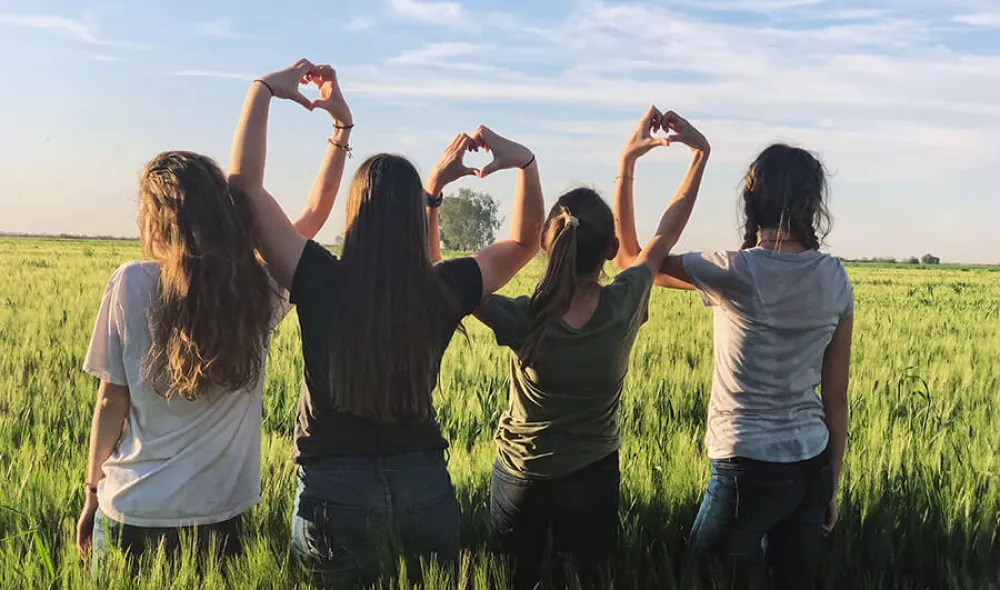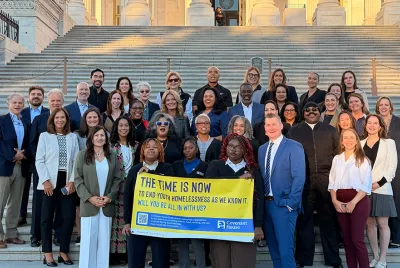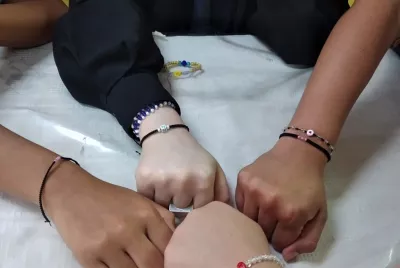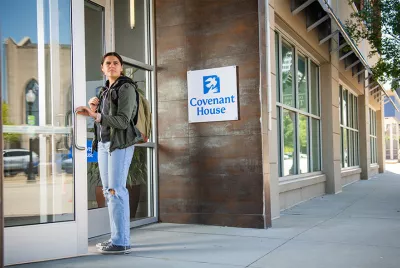Growing into Independence at Casa Alianza Mexico

Nallely was just 13 when she came to Casa Alianza Mexico (CAM), our Covenant House site in Mexico City. Now 25 and living independently, she knows well how anxious a young person may feel at the prospect of stepping out on their own, even when they long to do so. That’s why she’s a Sitka mentor at CAM, helping residents prepare for that momentous step of independence.
“I know it’s not easy; separating ourselves somehow from Casa Alianza can be frightening, and some of the young people worry about not having rules or norms to live by,” Nallely says. “I just tell them not to stray from the path that they’re on or from the goals that they have, and to continue reaching for them.”
Their apprehension is understandable, especially when you consider how young our residents are when they come to Casa Alianza Mexico. Unlike Covenant House sites in the U.S. and Canada, at our Latin America sites, residents may be as young as 12 or even10 years old when they arrive, and the average age is just 15. Coming from situations of abuse, neglect, exploitation and abandonment, they find at Casa Alianza the only stable home they may ever have known.
Our goal is to ensure that these young people are wrapped in love and relentless support, as every day, we meet both their immediate needs and help them build the confidence and skills that will carry them into independent adulthood.
In 2006, Casa Alianza Mexico created the Sitka program to help youth manage the mixed feelings of desire and anxiety related to their imminent independence. Sitka is a discussion group that offers residents opportunities to meet with and learn from other young people who have already gone through the process and can offer trusted guidance and insights from their own experience.
The group meets once a month on weekends to avoid interfering with the alumni’s busy schedules of jobs, family, and housework. Each meeting focuses on a particular theme, such as institutional detachment, early pregnancy, autonomy, risky behavior, self-understanding, and motivation. And the conversations reinforce values like empathy, understanding, and encouragement for the youth still in residence. Just as we promised our youth on the day they walked through our doors, there is no judgement about how they feel during these sessions.
Even as a mentor, Nallely finds the conversations helpful and supportive. “Sometimes I need to figure out how to manage a certain situation and this program orients me so I can find the solution. It gives me tools I can apply in my daily life. I like it because it always guides me toward being a better person,” she says.
She hopes the CAM residents preparing for independence today feel the same way and that “they’ll give the process their all, striving for self-improvement without losing humility or any of the values we all learned at Casa Alianza Mexico,” she says.
Nallely is a role model for how those values, based on love and respect, can carry each young person through our doors and into the next amazing chapter of their lives. “Everything is useful. Every bit of advice I received from staff, every mistake I made and corrected, every workshop or course I took,” Nallely counsels.
“Even years after I left Casa Alianza Mexico, I continue to feel inspired by the encouraging words I heard there and to use the tools they continue to share with me,” she says.
You might also like...
All news & insightsShelter Is Only the Beginning
From crisis to care: Find out what it's like when a young person enters our doors.


